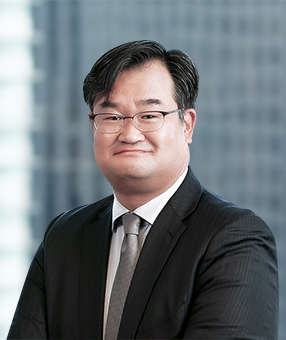When the Improper Solicitation and Graft Act, popularly known as the “Anti-Graft Act” or the “Kim Young-ran Act” (hereinafter referred to as “Anti-Graft Act”), first became effective on September 28, 2016, it quickly emerged as a hot social topic. On the one hand, there were rising expectations that the new law would serve as an effective means of strengthening the integrity of public officials; at the same time, there was also criticism that the scope of application of the new law was overly broad and that setting strict limits even on mundane items like the price of meals was excessive. This year marks the fifth-year anniversary of the implementation of the Anti-Graft Act, which provides an occasion to look back on how it has been enforced since its inception, with a view to anticipate how this law will be enforced going forward.
Public attention on the Anti-Graft Act appears to have died down to some extent over the past five years since it was first implemented. However, there has been renewed attention on the Anti-Graft Act as a result of a recent case in which several high-profile figures were investigated for having received lavish gifts from a questionable CEO of a fisheries business and was suspected of having defrauded investors. The high profile figures in this case included a former Special Prosecutor, as well as members of the National Assembly, media, and senior government officials.
In the following, we will examine some of the key issues in the form of common misperceptions associated with the Anti-Graft Act, and also trends in enforcement that we have seen over the past five years.
Misperceptions Relating to the Anti-Graft Act
-
Do the Sanctions Amount to a Mere “Slap on the Wrist?”
Over the past five years, a total of 39 individuals (involved in 26 cases) have been convicted in criminal court solely on the basis of charges under the Anti-Graft Act. Of these, only five individuals were sentenced to imprisonment and the remaining 34 individuals were given lighter sentences, such as a criminal fine or a deferred sentencing. At the same time, according to data published by the Anti-Corruption and Civil Rights Commission (“ACRC”), a total of 1,025 individuals have been sanctioned for violating the Anti-Graft Act as of the end of 2020. These figures tend to suggest that the proportion of individuals held criminally liable and punished for violating the Anti-Graft Act is relatively low compared to the total number of individuals subject to sanctions – meaning that most of those who were sanctioned were subject to non-criminal sanctions (i.e., administrative fines or disciplinary sanctions). In this regard, a popular perception has been that a violation of the Anti-Graft Act is punished merely by a “slap on the wrist.”
However, according to a press release of the ACRC, 651 out of the 1,025 individuals were subject to an administrative fine, and 236 individuals were subject to a disciplinary impositions. More specifically, in cases where benefits were provided in connection with the recipient’s public duties, the relevant individuals were subject to an administrative fine of two to five times the amount they provided/received, and the companies were also held liable on the basis of vicarious liability even for provision/receipt of a relatively small amount of benefits. Cases involving lower amounts of benefits included the following: (i) food and beverages amounting to less than KRW 30,000 per person, (ii) a gift amounting to less than KRW 50,000, or (iii) a 20% discount (KRW 13,750) on golf club green fee through the use of corporate memberships.1 Furthermore, according to the ACRC, in addition to the 1,025 individuals who have already been sanctioned, 1,086 individuals are currently subject to pending investigations or litigation relating to administrative fines under the Anti-Graft Act, and therefore, the number of those sanctioned is expected to increase.
The reason for a relatively small number of individuals being subject to criminal sanctions under the Anti-Graft Act may be because criminal sanctions are imposed only when certain set monetary thresholds are exceeded, i.e., only when the amount of benefit provided/received exceeds KRW 1 million in a single instance, or KRW 3 million in aggregate during one fiscal year. If the amount of benefits provided/received is below these thresholds, only non-criminal penalties, such as administrative fines, may be imposed.
It would be erroneous to conclude that a violation of the Anti-Graft Act results in light punishment, based on the low proportion of violators who are subject to criminal sanctions. Rather, the appropriate conclusion is that the high total number of violators who have been generally sanctioned show that the Anti-Graft Act is being actively enforced.
-
Lenient Enforcement Against Members of the Media Compared to Government Officials?
Another misunderstanding of the Anti-Graft Act is the perception that enforcement has been somewhat lenient with respect to journalists and members of the media compared to government officials.
Over the past five years, a total of 93 individuals (involved in 53 cases) underwent a court proceeding and received final sentences at least in part for violating the Anti-Graft Act. Among the 93 individuals, 69 were public officials (with the remaining 24 being “civilians” who provided benefits to public officials); among the 69 public officials, journalists made up the largest group, comprised of 24 individuals.
In the cases involving the 24 journalists, most were cases where journalists received benefits from local companies with a request that they would write a positive story or refrain from writing a negative story. There is also a case in which “advertising fees” were paid to the bank account of a media company and yet the court determined that the payment had been intended for an individual reporter working at the media company and that effecting such payment was in violation of the Anti-Graft Act.
As these cases demonstrate, the Anti-Graft Act appears to be strictly applied to and enforced against journalists.
Enforcement Trends
After five years of enforcement, there has been a growing track record of cases which has enabled some further elaboration of some of the details concerning the types of conduct that would be subject to enforcement.
In addition to the cases mentioned above, the following are some key cases involving violations of the Anti-Graft Act based on media reports and court decisions.
A. Violation Found in Absence of an “Improper Request”
Facts: A, a local official, received benefits from a local businessman he had known for years, in the form of KRW 1 million in cash as a “gift to congratulate A’s recent promotion” and a meal worth KRW 300,000. The businessman did not make any special requests to A. When A recognized the potential issue in receiving such benefits, A immediately returned the cash gift and voluntarily reported the matter.
Punishment: Deferred sentencing of criminal fine of KRW 1 million
Key Takeaway: If a public official receives a benefit exceeding KRW 1 million in a single instance, a criminal penalty may be imposed for violating the Anti-Graft Act even if the provider of the benefit does not make any improper request, and the public official returns the money he/she received. While the bribery provisions of the Criminal Code require a showing relating to a request made to a public official, this is not the case under the Anti-Graft Act.
B. Violation Found Even if No Action Taken by Public Official
Facts: B, an administrative officer at the Prosecutor’s Office, received KRW 2 million in cash from an acquaintance who was the subject of a criminal complaint and a pending criminal investigation. The acquaintance asked B to “check on the status of the police investigation.” The administrative officer did not actually take any action to influence the investigation.
Punishment: Criminal fine of KRW 1 million
Key Takeaway: A criminal penalty may be imposed for violating the Anti-Graft Act even if the public official who received the benefit does not take any action in return for the benefit he/she received.
C. Preferential Treatment in Hiring
Facts: C worked at a public institution. When C’s son applied for a job at the same public institution, C asked the interviewers to favorably evaluate his son. However, the interviewers voluntarily reported the matter, and C’s son gave up on the interview and was not hired.
Punishment: Administrative fine of KRW 10 million
Key Takeaway: A violation can be found for making an improper request to a public official under the Anti-Graft Act, even if the public official does not take action pursuant to the improper request. There have been a number of cases where an individual improperly requested preferential treatment in personnel matters (e.g., hiring process, promotions), and the improper request was detected through internal audit, voluntarily report, etc.
D. De Minimis Amount of Benefit
Facts: D, who had applied for industrial accident compensation, mailed a box of 24 cans of Sik-hye (a Korean beverage) worth KRW 9,700 to an employee of the National Health Insurance Services in charge of approving such compensation.
Punishment: Administrative fine of KRW 20,000
Key Takeaway: A penalty may be imposed for violation of the Anti-Graft Act even when the amount of the benefit is quite small, if the benefit was provided/received in connection with the public official’s duties.
E. Active Request for Benefit
Facts: E, who handles camera work at a media company studio, had an acquaintance who had a complaint against a third party. E told the acquaintance that he would need “KRW 100 million to get the story on air.” E received a total of KRW 65 million in five installments, and used his influence at the media company to have a reporter broadcast the story.
Punishment: Sentence of ten months
Key Takeaway: The court regarded the fact that E actively demanded money and received a large amount of money as aggravating factors in determining the level of sanctions.
F. Requesting Favorable News Articles
Facts: F, a local reporter, received KRW 20 million from a construction company executive who requested F to write articles promoting the sale of units in an apartment complex. F then gave out amounts ranging from KRW 500,000 to KRW 1.5 million to 13 reporter colleagues (totaling KRW 12.4 million, out of the KRW 20 million F had received). F and his reporter colleagues then wrote promotional articles relating to the apartment complex.
Punishment: Sentence of eight months; suspended for two years
Key Takeaway: The reviewing court imposed criminal penalties finding that the conduct at issue had undermined the local residents’ trust in the fairness and objectivity of the media.
G. Request of Payment for Blocking Negative Media Coverage
Facts: G, a vice president and reporter of a media company, suggested to a subcontractor of an apartment construction project that G would prevent reporters from writing articles criticizing the subcontractor, if the subcontractor would pay G KRW 9.8 million. G dissuaded reporters from writing articles criticizing the subcontractor, and then demanded the subcontractor to pay the indicated amount.
Punishment: Criminal fine of KRW 3 million
Key Takeaway: Under the Anti-Graft Act, a criminal penalty may be imposed on a public official simply for demanding benefits, regardless of whether benefits were actually provided to the public official.
H. Receiving Payments on Behalf of the Media Company
Facts: H, the editor-in-chief of a newspaper, demanded money and valuables from local businessmen in return for suppressing negative media coverage. H also received money and valuables in the form of “advertising fees” through an account opened in the name of the newspaper in return for writing favorable articles.
Punishment: Sentence of 8 months; suspended for 2 years. In this case, the sanctions also related to charges of commercial bribery (breach of trust), in addition to charges under the Anti-Graft Act.
Key Takeaway: In principle, the Anti-Graft Act does not apply when benefits are provided to/received by a public institution or organization, rather than by an individual public official. However, a violation of the Anti-Graft Act may still be found in cases where, although the money and valuables were provided to/received by a public institution or organization (e.g., media company) in form, but in substance such benefits were intended for an individual public official (e.g., employee of the media company), or where circumstances indicate that the individual public official rather than the entity actually received the benefit.
Enforcement Outlook
Since the introduction of the Anti-Graft Act, there have been conflicting voices, with some calling for further tightening of the standards for imposing sanctions to enhance the integrity of the public service community; while others have called for loosening the scope of application or monetary limits. Over the past five years, both the efforts to tighten and relax the application of the Anti-Graft Act have been enacted or proposed as summarized in the table below.
| Measures to Strengthen Regulation | Measures to Loosen Regulation |
|
|
However, it would be fair to say that the general trend is moving towards the direction of further strengthening the regulatory framework of the Anti-Graft Act, especially given the following factors:
-
there is a greater social expectation of enhanced integrity of public officials following the recent case involving the fake fisheries businessman, and other high-profile corruption cases;
-
the National Assembly recently passed the Act on the Prevention of Public Officials’ Conflicts of Interest (expected to enter into effect in 2022) following a real estate speculation scandal (also known as the “LH Scandal”) involving officials at the Korea Land and Housing Corp., who allegedly used non-public information for their personal purchase of undeveloped land around Seoul on speculation;
-
the amendment to the Act on Anti-Corruption and the Establishment and Operation of the ACRC is expected to enable the ACRC to undertake fact-finding with respect to alleged violators named in whistleblower reports, which will likely facilitate the processing of corruption-related whistleblower reports, and
-
according to the results of a survey conducted by the ACRC in September 2020, 87.8% of the Korean population stated that they support the Anti-Graft Act.
Taking into account these developments as a whole, we expect that the Anti-Graft Act will continue to be actively enforced by the relevant regulatory and criminal investigation authorities, as well as the courts. Accordingly, companies should continue to make efforts to comply with the Anti-Graft Act.
Related Topics
#Anti-Graft Act #Anti-Corruption & Corporate Compliance #Legal Update







